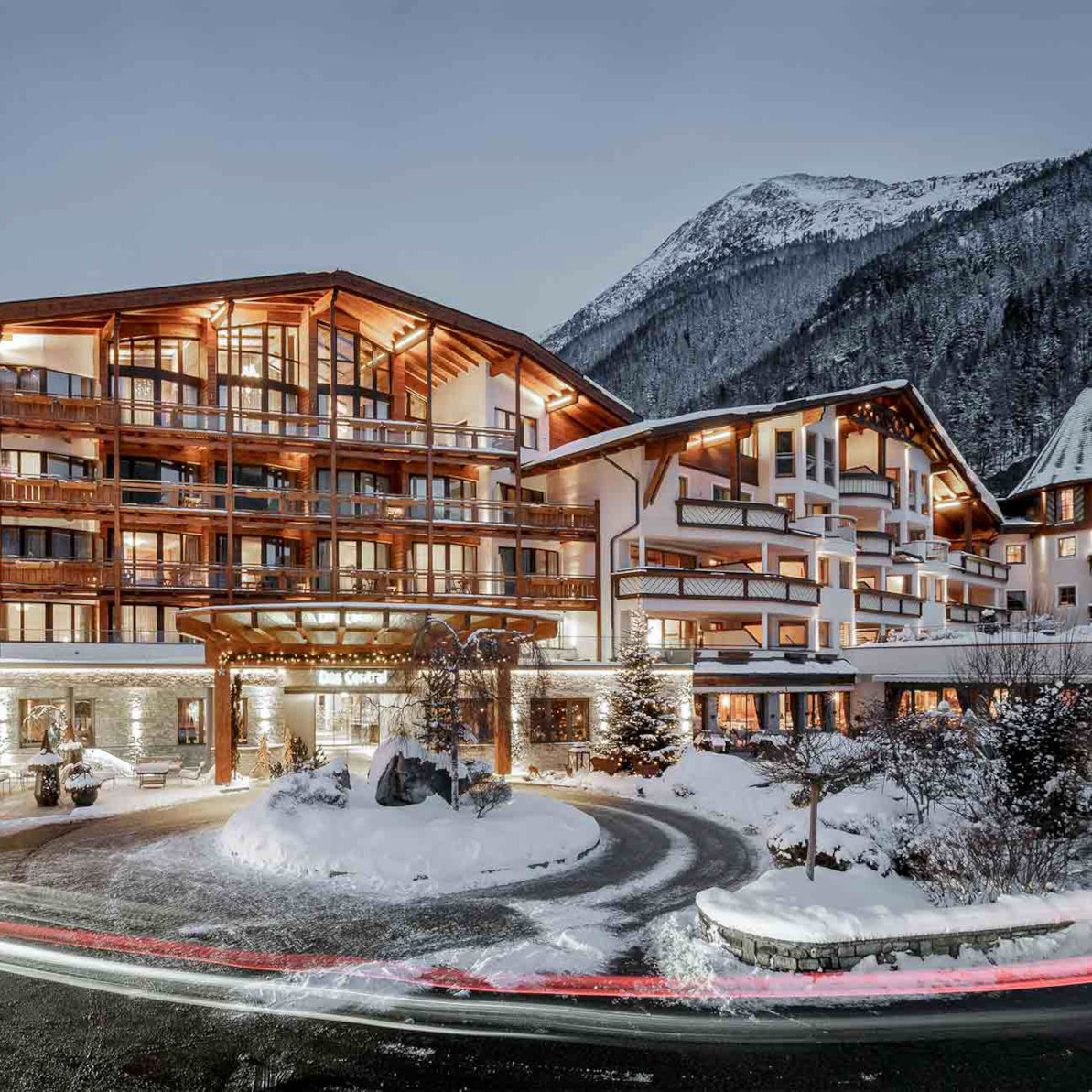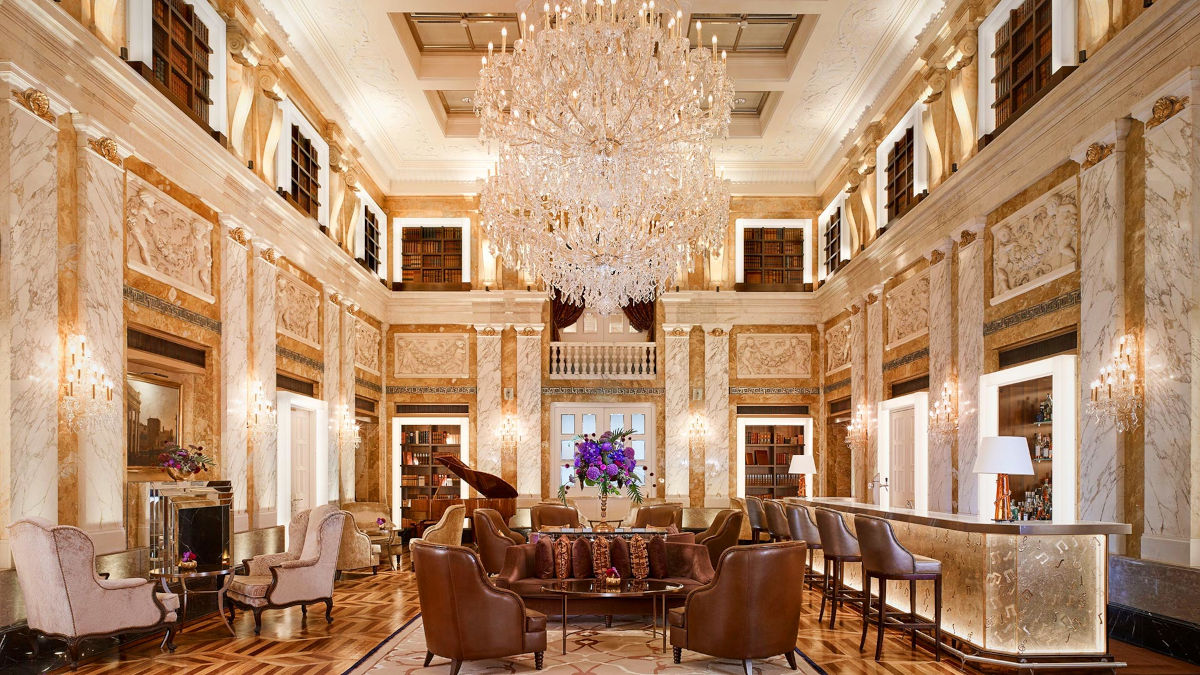For more than a century, the famousMICHELIN Red Guide was synonymous with culinary perfection, awarding stars to restaurants around the world. Few people know that originally the guide created by brothers André and Édouard Michelin in 1900 was intended to promote… automobile travel and increase tire sales. Over time, gastronomy became its center, and today MICHELIN is returning to its roots – travel – and introducing a new form of prestige: the MICHELIN Keys, or MICHELIN Keys for top hotels.
The new designations – One Key, Two Keys and Three Keys – are awarded to hotels that excel not only in luxury. Above all, they offer guests a unique experience. Michelin specialists evaluate, among other things: architecture and interior design, quality and consistency of service, character of the place, value for money and the hotel’s impact on the local travel experience.
Austria on the MICHELIN hotel map
As many as 62 hotels were recognized in the first Austrian edition of the MICHELIN hotel ranking, including:
- 2 hotels with three Keys
- 17 hotels with two Keys
- 43 hotels with one Key
Austria, known for its attention to the guest, combines Alpine hospitality with design and history. The most honors went to Vienna, which won as many as 21 Keys at 14 properties – from modern boutique hotels to legendary historic palaces.
Are hotels with the MICHELIN Key a good choice?
These are not only places ideal for a luxury vacation. Hotels honored by the MICHELIN are versatile spaces that will work well as:
- vacation and city break destinations,
- places for a romantic weekend or spa retreat,
- Luxury locations for conferences, business trips and corporate events.
Some, like Rosewood Schloss Fuschl, resemble fairytale castles. While others – like The Guesthouse Vienna – are designer spaces with soul. MICHELIN cares not only about the taste of food, but also the taste of life – and the Key hotels are proof that travel can be a work of art.
Top 5 hotels in Austria according to MICHELIN, or who holds the Michelin keys?
- Rosewood Schloss Fuschl – Hof bei Salzburg (Three Keys)
A fairytale castle on Lake Fuschlsee, with a history dating back to the 15th century. After an extensive renovation, it offers the ultimate in luxury, a spa, world-class cuisine and breathtaking surroundings. - Hotel Sacher Wien – Vienna (Three Keys)
An icon of Viennese elegance and tradition. Luxurious interiors, the legendary Sacher’s cake and the location right next to the State Opera make this place a must-see on the city map. - Grand Tirolia Kitzbühel – Kitzbühel (Two Keys)
Alpine pearl with an exceptional wellness center and golf course. An excellent choice for skiing enthusiasts in winter and active vacationers in summer. - Hotel Sans Souci – Vienna (Two Keys)
A combination of art, design and relaxation. One of the most beautiful urban spas in Austria is also located here. The perfect hotel for a stylish city break. - Hotel Schloss Seefels – Techelsberg, Carinthia (Two Keys)
A luxury hotel located on the picturesque Wörthersee. A private beach, lake views and elegant interiors create an atmosphere for a unique vacation.
Travel with class, or do Michelin keys provide exclusive accommodations?
The new MICHELIN awards are much more than just another ranking of prestigious addresses. It’s a manifesto for conscious travel, full of experiences and meaning. But does the MICHELIN Key really guarantee luxury? Is there always an authentic experience behind the beautiful facade of a hotel?

MICHELIN inspectors look at five key criteria: architecture and design, quality of service, consistency of style and atmosphere, local character of the place, and value for money. So it’s not about gold taps or marble lobbies, but something much more valuable – the emotional comfort and uniqueness of the experience. Does the guest feel like they are in a faceless luxury, or rather a place that has a soul?
MICHELIN is looking for hotels that stay in your memory long after you check out – ones that surprise you with their attention to detail, can tell the story of the region and create a bond between the traveler and the local. That’s why the MICHELIN Keys are not only a symbol of high quality. It is also a guide to hotels that are not just a place to sleep. Travel To them is an end in itself.
So do the MICHELIN Keys stand for exclusivity? Yes – but understood not through the prism of price, but through the value of the experience.





